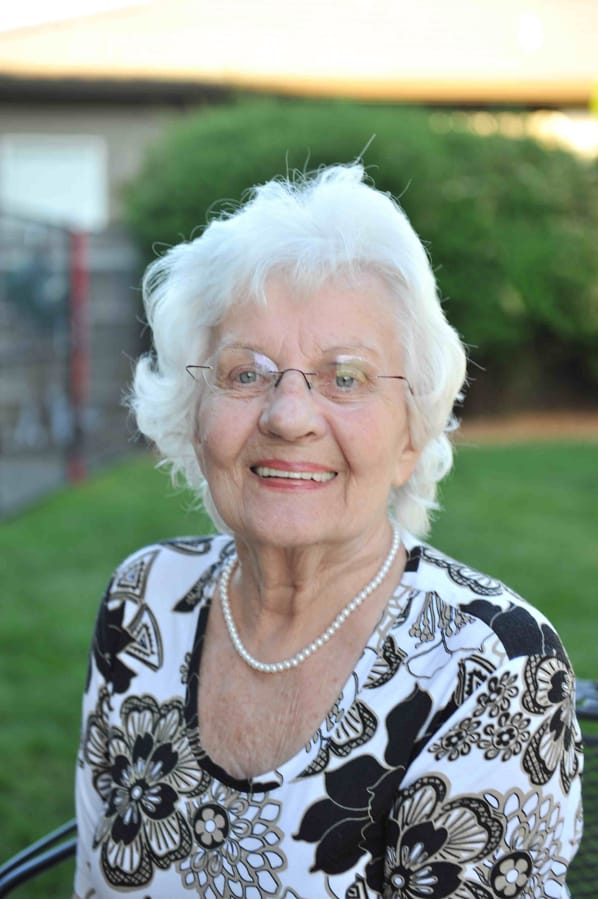When Janis Jasinsky’s mom, Grayce Vanerio, was living with Alzheimer’s, Jasinsky did everything she could to craft one-on-one connection.
Being together, in the present, was one way the mother and daughter could find reprieve from the disease that structurally altered Vanerio’s personality and life. Gone was the independence and energy that had defined Vanerio, who always organized her high school reunions, vacation Bible school and Sunday school.
Instead, Vanerio was living in an adult family home near Jasinsky’s home in Camas after relocating from Texas around Christmas 2010. They’d thumb through books together, or Jasinsky would rub lotion on her mother’s body. If her mom saw a baby, she’d “light up,” Jasinsky said. Her mother, who raised four children, was involved in the church preschool in Texas and loved little kids.
“I watched the changes and I tried as much as I could, no matter what stage of the disease, to connect with her,” Jasinsky said of her mom, who died at 81 in 2014. “I truly believe that a person who has Alzheimer’s, their essence is always there.”
If you go
What: Walk to End Alzheimer’s
When: Sunday. 10 a.m. registration; 11:45 a.m. ceremony; noon 2-mile walk.
Where: Esther Short Park, 605 Esther St., Vancouver
Cost: Walkers are asked to make a personal donation. Proceeds further the care, support and research of the Alzheimer’s Association.
Contact: Don Schwartz, 503-416-0213 or dschwartz@alz.org
Through her mother’s diagnosis and their family’s battle against that diagnosis, Jasinsky discovered the Alzheimer’s Association, which helped her with resources to navigate the diagnosis. She also took part in her first Walk to End Alzheimer’s in 2010 in Portland.
She will be participating in Sunday’s Walk to End Alzheimer’s at Esther Short Park, the second year Vancouver has hosted a walk. Jasinsky has raised almost $4,000 as part of the walk, and is a top-five fundraiser this year.
“The first time you go to the walk, you’re surrounded by thousands of people who have all been impacted by the disease,” she said. “Some of them have it. Some of them have lost loved ones. Some of them have loved ones who have the disease. It’s just so powerful. That’s when you realize how much you’re not alone.”
Jasinsky’s father, Bud, was her mother’s primary caretaker after her diagnosis, but Jasinsky took over that role after Bud died in 2010.
She said being a caretaker can take a toll on you, especially if you don’t create time for yourself away from the person receiving care. Jasinsky recommends putting your loved one in a care home if possible. Doing that allowed Jasinsky to be with her mom as her daughter, not her caregiver, she said. Jasinsky also explained it’s important to seek help when you need it.
“That’s a critical pillar of support,” she said. “Other critical pillars are family and friends. Sometimes they want to help, but they don’t know what to do. People can be uncomfortable around someone who has dementia if they haven’t done that before. As a caregiver, you have to be able to ask for help sometimes. It’s such an isolating disease.”
Jasinsky, who retired in 2012 from a career with Hewlett-Packard, is now a volunteer community educator, teaching classes locally on dementia. She also runs a support group for the Alzheimer’s Association. Jasinsky wants to raise awareness about the disease and resources people can utilize to help them navigate a diagnosis.
“My passion is to help others who find themselves in that situation,” Jasinsky said. “If you have a deep knowledge of something, your gift is to share it with others. Connecting and hearing people’s stories, I learn more with every person I meet and then I’m able to help them so they can take some nuggets. That’s what fuels me now.”





